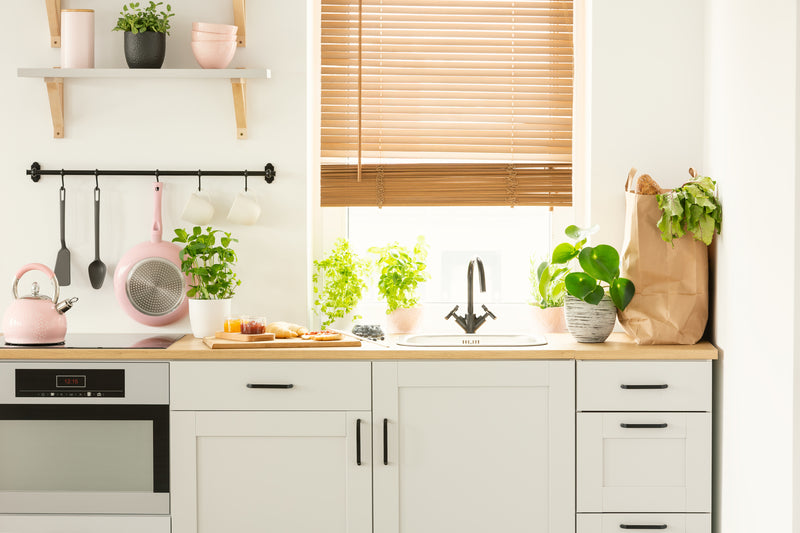
A well-organized and clean kitchen is the heart of a home, especially for young families juggling various responsibilities. Keeping a tidy kitchen is not only visually appealing, but it also promotes good hygiene and makes cooking and meal preparation more efficient.
Prevent Oil Splash
Cooking can be a messy affair, especially when dealing with hot oils. Preventing oil splash not only keeps your stovetop and countertops clean but also ensures a safer cooking environment. Utilize splatter guards when frying or sautéing to contain oil splatter and minimize the cleanup afterward. Be mindful of using appropriately sized pans and pots to reduce the risk of spills and splashes, keeping your cooking area more manageable and mess-free. Make sure to dry off any excess moisture on food items before adding them to hot oil as the introduction of water can cause splattering. To further prevent oil splash, consider using a deep-fryer for frying instead of a regular pot or pan. Deep fryers are designed with safety in mind and often come with lids or built-in mechanisms to control splatter. The controlled temperature of a deep fryer can help prevent oil from getting too hot and causing dangerous splashes.
Clean Up After
Leaving crumbs all over your floor after a meal can attract pests and make your kitchen unsanitary. Establishing a routine for post-meal cleanup is key to maintaining a tidy kitchen. Wash dishes promptly, wipe down countertops, and clean spills as soon as they occur. Don't forget to sweep the floor to eliminate crumbs and food debris that might attract unwanted visitors. By making post-meal cleanup a habit, you not only ensure a clean and hygienic kitchen but also make future cooking endeavors more enjoyable. Cleaning up after yourself extends beyond just the kitchen. It is important to tidy up after any activity or task that may leave behind a mess. This could include wiping down equipment after a workout, picking up toys after playtime, and throwing away trash after a project. Not only does this maintain cleanliness in your space, but it also promotes responsibility and good habits.
Keep It Organized
A clutter-free kitchen is easier to clean and navigate. Implementing organization strategies can significantly contribute to the overall tidiness of your cooking space. Designate specific areas for utensils, pots, pans, and other kitchen essentials. Use storage containers and shelves to keep items neatly arranged, making it easier to locate what you need. Regularly declutter your kitchen by getting rid of expired or unused items to free up space and maintain an efficient and visually appealing cooking environment. Consider labeling containers and shelves for easier identification and tidiness. Eliminate unnecessary duplicates by only keeping one of each item in your kitchen. If you have multiple spatulas or wooden spoons, keep the ones that are in the best condition and donate or dispose of the rest. This will not only create more space but also make it easier to find what you need without sifting through unnecessary duplicates.
Maintaining a clean and tidy kitchen is an ongoing process that involves preventive measures, regular cleanup, and organizational strategies. By incorporating these practical tips into your routine, you can create a kitchen that not only meets your family's nutritional needs but also provides a welcoming and organized space for shared moments and delicious meals.
Did You Enjoy Reading This Article? Here’s More to Read: Cuisines You Should Explore More in the Kitchen







